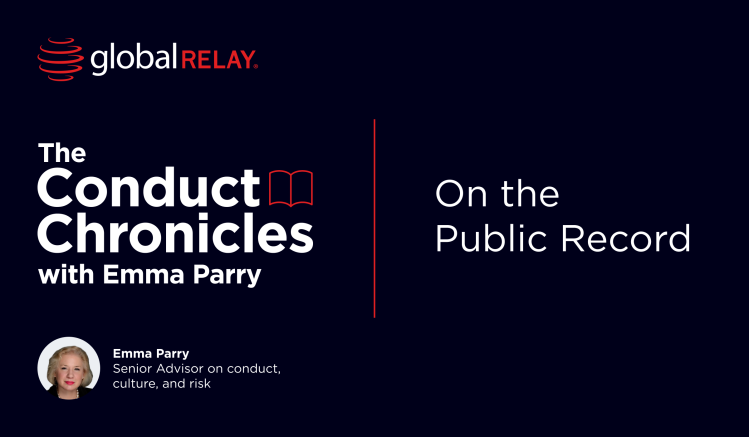
Financial promotions on social media
In March 2024, the Financial Conduct Authority updated their rules around financial promotions in social media in accordance with the new Consumer Duty requirements. This update clarified how regulated financial institutions needed to manage all authorized promotions across social media, and set up controls for any of the ‘finfluencers’ they work with.
Written by a human
Unauthorized financial promotion charges seem to be rising as the FCA cracks down on social media promotions.
Inaccurate minibonds promotions duped investors without balancing the risks
In 2024, the FCA fined the Director of investments firm London Capital and Finance, Mr Huisamen, £31,800 for failings in the approval of misleading financial promotions.
The company had been promoting minibonds recklessly to thousands of retail investors, making the financial product appear more attractive to invest in because they failed to properly disclose the risks. There was also missing information about hidden charges, and the unsustainable lending nature of the minibonds.
Mr Huisamen failed to provide scrutiny over the social media financial promotions, instead treating the approvals like a box ticking exercise. In fact, the FCA also revealed that the ex–Director continued to approve the illegal financial promotion even after being made aware of their inaccuracies, ignoring risk warnings.
Alongside the fine, Mr Huisamen was also banned from working in financial services.
‘Finfluencer’ ring facing charges
In a still ongoing case, nine individuals, seven of which are influencers, each face one count of unauthorized communications of financial promotions under Section 21 of the Financial Services and Markets Act 2000.
Between May 2018 and April 2021, it has been alleged that two of the group used social media channels, including an Instagram account, to advise followers on the buying and selling of contracts (high risk investments) even though they were not authorized to provide this advice. Specifically, the promotions centered around an unauthorized foreign trading scheme.
In this social media promotion ‘ring’, the two account owners then allegedly recruited seven influencers who were paid to promote the account on the social media platform, therefore becoming potentially complicit in the sharing of unauthorized financial promotions. This social media marketing case is still ongoing so all details are alleged, and the trial has been set for 2027.
So what are the rules for financial promotions on social media?
The key takeaway here is the financial promotions on social media are still financial promotions at their core, and will be regulated the same way. What’s more, as an agnostic rule, it applies to all channels, including the likes of Instagram stories, forums like Reddit, and chatrooms like Discord or Twitch.
Under the Financial Services and Markets Act, a person must not communicate an invitation to engage in investment activities unless one of the following three exceptions applies:
- It’s communicated by an authorized person
- The content is approved by an authorized person
- There is an available exemption under the FSMA
Who is an authorized person?
Under section 4 of FSMA, an authorized person is an appropriately qualified individual who has applied and been approved by the FCA. Typically, this is a qualified financial adviser or similar who is proven to have studied the rules and regulations and can appropriately abide by them.
Considerations for a firm’s social posts
Here are the primary concerns for an institution’s own social media posts:
- Standalone Compliance
- Prominence
- In the spirit of Consumer Duty
The regulators have made it clear that each promotion will be considered individually, so you’ll have to ensure that every single post:
- is balanced, highlighting both the potential risks as well as rewards
- provides insight into the complexity of the product for customers to make well–informed decisions
- Meets both of the above requirements prominently – the audience shouldn’t have to search the caption or click ‘see more’, removing obscurity
- is compliant even if those beyond the intended audience see the promotions (in the case of sharing and forwarding)
- operate in line with consumer duty by prioritizing the customer’s needs over profit–making
Considerations for working with ‘finfluencers’
Many firms choose to partner with influencers in the financial space to boost their promotional campaigns, and the regulators recognize that it’s a key way to drive business. But while audiences tend to be more receptive to this type of content as it’s deemed more relatable, the quality of these communications is harder to control since they are not made in–house.
Remember that all affiliate posts are required to be approved by an authorized person, and that firms are responsible for compliance across their entire affiliate network. We recommend creating internal policies to provide uniformity across your approved communications, as this will not only meet quality standards, but should also frustrations related to compliance delays.
Finally, consider the audience of each influencer you work with. By collecting key information, you can ensure that the proposed financial promotions are genuinely appropriate.
Why were the rules updated in 2024?
The financial promotions rules were updated in order to reflect the changing priorities of the FCA and investors alike.
‘Authorized persons’ are no longer totally authorized to approve all financial promotions unless they have obtained a Variation of Permission. This change has been made as product categories expand; it aims to ensure that the approver has the appropriate knowledge, and that the board can display their oversight in the process.
This should hopefully overhaul the way that crypto firms promote their currencies, as this was a previously underregulated area of compliance. It’ll also aid firms in their due diligence and record–keeping processes in the situations of compliance, auditing and investigations.
What does this mean for your financial institution and the influencers you might be working with?
The new financial promotions rules require compliant organisations to consider:
- When you communicate the rules to your finfluencers, including providing guidance, templates and SOPs
- How to decide on who approves the content to prevent bottlenecks
- Providing evidence of suitability through the documentation of due diligence
- Reacting to non–compliant financial promotions
Partner with the experts in compliant communications, Global Relay, to help you stay on the right side of the regulators.



